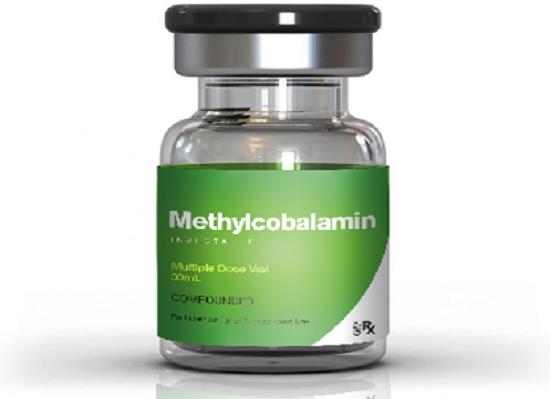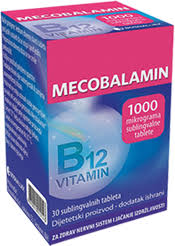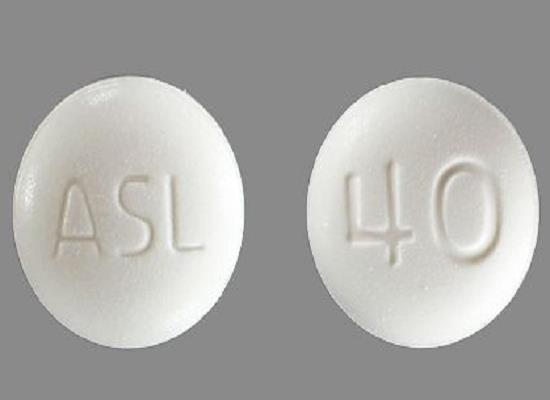Mecobalamin: mechanism, pharmacokinetics and metabolism
General Description
Mecobalamin is an essential cofactor of methionine synthesis and plays a crucial role in addressing vitamin B12 deficiencies that can cause significant neurological pathology, particularly peripheral neuropathy. It reduces homocysteine concentration by enhancing the efficiency of the remethylation pathway, potentially improving arterial baroreflex function, and decreasing the risk of cardiovascular diseases. Mecobalamin shows similar absorption to cyanocobalamin when administered orally and leads to greater tissue retention, making it a highly effective treatment option for neuropathy. The recommended dosage range for clinical effectiveness is 0.5 – 6 mg/day, with positive clinical results reported for all administration routes.
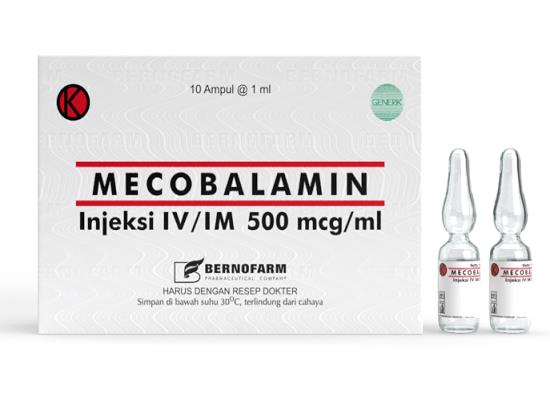
Figure 1. Injection of mecobalamin
Mechanism
Antihyperhomocysteinaemia
Mecobalamin acts as an important cofactor of methionine synthesis. One of the main risk factors for cardiovascular diseases is high levels of plasma or serum homocysteine (Hcy), which can lead to endothelial dysfunction, arterial intimalmedial thickening, arterial wall stiffening, and procoagulant activity. Many epidemiological studies have shown a relationship between total Hcy levels and a range of diseases, including coronary artery disease, stroke, peripheral vascular disease, and venous thrombosis. Supplements of mecobalamin can enhance the efficiency of the remethylation pathway, which accelerates Hcy consumption and reduces its concentration, thus lowering homocysteine concentrations to the normal range of 4-15 µmol/l. This seems to be an effective therapeutic method in decreasing the risks of the aforementioned diseases. Additionally, an animal study found that mecobalamin improved arterial baroreflex function, which could be a new target for preventing stroke in stoke-prone, spontaneously hypertensive rats. The reduction of Hcy concentration might contribute to the baroreflex sensitivity and improve the effect of mecobalamin. Overall, mecobalamin's mechanism in antihyperhomocysteinaemia involves enhancing the efficiency of the remethylation pathway, reducing Hcy concentration, and potentially improving arterial baroreflex function, leading to a decreased risk of a range of diseases. 1
Treatment of neuropathy
Mecobalamin plays an important role in the treatment of neuropathy by addressing deficiencies caused by a lack of mecobalamin. Vitamin B12 deficiency has been linked to significant neurological pathology, particularly peripheral neuropathy, which can be caused by hypomethylation in the CNS due to the inhibition of methionine synthase. This leads to a fall in the ratio of SAM to S-adenosylhomocysteine, which affects the methylation reactions in the myelin sheath. Animal studies have shown that neurotoxic cytokines such as TNF-α and the decrease of neurotrophic EGF may also participate in the onset of neuropathy. In patients with diabetic neuropathy or renal failure, vitamin B12 deficiency may be caused by diabetes itself or reduced serum levels of thiocyanate clearance, respectively. Mecobalamin is considered to be used in the cyanide detoxification process via cyanocobalamin synthesis. In an in vitro study, chronic administration of mecobalamin was found to protect cultured retinal neurons against NMDA-receptor-mediated glutamate neurotoxicity, potentially by altering membrane properties through SAM-mediated methylation. Overall, mecobalamin's mechanism in the treatment of neuropathy involves addressing the deficiencies caused by vitamin B12 deficiency and potentially protecting against neurotoxicity through SAM-mediated methylation. 2
Pharmacokinetics and metabolism
Mecobalamin's pharmacokinetics and metabolism have been studied to understand its efficiency, absorption, distribution, and excretion. Evidence suggests that mecobalamin is used more efficiently than cyanocobalamin in increasing the levels of one of the coenzyme forms of vitamin B12. When administered orally, mecobalamin shows similar absorption to cyanocobalamin. However, significantly more cobalamin accumulates in liver tissue with mecobalamin intake. Cobalamin circulates in plasma bound to two carrier proteins: transcobalamin (TC) and haptocorrin. TC transfers cobalamin from the intestine into the bloodstream and then into cells throughout the body. Cobalamin-saturated transcobalamin (holoTC) constitutes a portion of total plasma cobalamin. Mecobalamin leads to greater tissue retention, as indicated by a lower urinary excretion compared to cyanocobalamin. The recommended dosage of mecobalamin for clinical effectiveness is 0.5 – 6 mg/day, with no significant therapeutic advantage observed beyond this range. Mecobalamin can be administered orally, sublingually, intramuscularly, intravenously, or with intrathecal methods. Positive clinical results have been reported for all these modes of administration, with the most common dosage being 0.5 – 1.5 mg/day orally, intramuscularly, or intravenously. It remains uncertain whether there are differences in therapeutic advantages among these different administration routes. A study comparing sublingual and oral administration of mecobalamin with folic acid found no difference in lowering Hcy levels between the two routes of administration. 3
Reference
1. Jamaluddin MS, Chen I, Yang F. Homocysteine inhibits endothelial cell growth via DNA hypomethylation of the cyclin A gene. Blood, 2007;110:3648-3655
2. Head KA. Peripheral Neuropathy. Altern Med Rev, 2006;11:294-329
3. Yazaki Y, Chow G, Mattie M. A single-center, double-blinded, randomized controlled study to evaluate the relative efficacy of sublingual and oral vitamin B-complex administration in reducing total serum homocysteine levels. J Altern Complem Med, 2006;12:881-885.
You may like
Related articles And Qustion
Lastest Price from Mecobalamin manufacturers
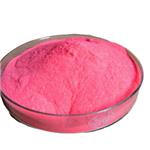
US $0.00-0.00/kg2025-10-22
- CAS:
- 13422-55-4
- Min. Order:
- 0.10000000149011612kg
- Purity:
- ≥98%
- Supply Ability:
- 20tons

US $1.00/KG2025-08-30
- CAS:
- 13422-55-4
- Min. Order:
- 1KG
- Purity:
- 98%
- Supply Ability:
- 20T

